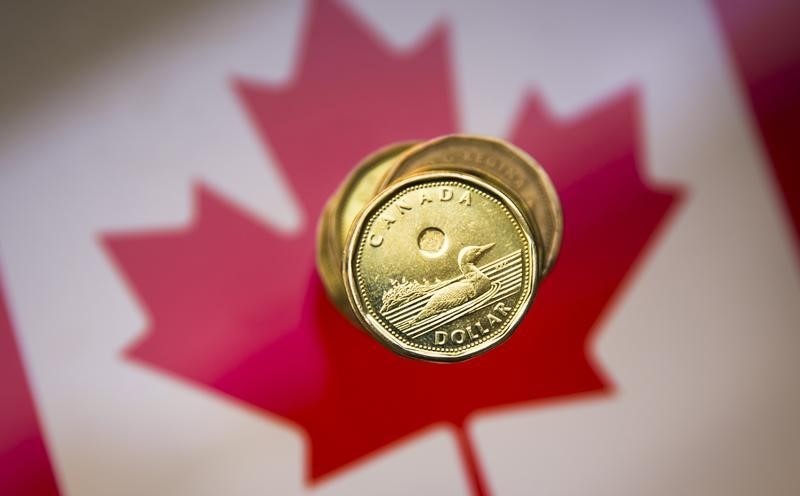* Canadian dollar at C$1.3266, or 75.38 U.S. cents
* Bond prices higher across flatter yield curve
By Fergal Smith
TORONTO, Sept 27 (Reuters) - The Canadian dollar weakened to a nearly six-month low against its U.S. counterpart on Tuesday as oil prices slipped and a speech by Bank of Canada Governor Poloz suggested the loonie may need to fall further to support the economy.
Central banks may find it more challenging to maintain inflation targets as the world economy becomes more integrated with increased international trade, Poloz said on Monday. recognized that the economy is not going to respond as positively to previous falls in the Canadian dollar as forecasts have long implied, said Adam Cole, global head of FX strategy at RBC Capital Markets.
The central bank has had a long-standing expectation that the economy would rebalance and non-energy sectors would be boosted by the fall in the Canadian dollar, and there seems to be a recognition that outcome may continue to be disappointed, Cole added.
U.S. crude CLc1 prices were down 2.92 percent at $44.59 a barrel as optimism faded for an output-limiting deal from an oil producer meeting in Algeria. O/R
Losses for the loonie may have been tempered by a view that Democratic U.S. presidential candidate Hillary Clinton fared better than rival Donald Trump in a television debate. 9:34 a.m. EDT (1334 GMT), the Canadian dollar CAD=D4 was trading at C$1.3266 to the greenback, or 75.38 U.S. cents, weaker than Monday's close of C$1.3237, or 75.55 U.S. cents.
The currency's strongest level of the session was C$1.3164, while it touched its weakest since Mar. 28 at C$1.3281.
Canadian policymakers are facing increased pressure to support the country's lackluster economy as infrastructure spending takes time to kick in and record high debt loads dampen the impact of stimulus cheques. implied probability of a Bank of Canada rate cut by mid-2017 has increased to around 50 percent from less than 20 percent before a weaker-than-expected inflation report on Friday, overnight index swaps data shows. BOCWATCH
Canadian government bond prices were higher across a flatter yield curve, with the two-year CA2YT=RR up 2 Canadian cents to yield 0.489 percent and the benchmark 10-year CA10YT=RR rising 33 Canadian cents to yield 0.959 percent.
Canada's gross domestic product data for July is due on Friday. The economy is expected to have grown by 0.3 percent, which would reinforce expectations that it rebounded in the third quarter after contracting in the second. ECONCA
